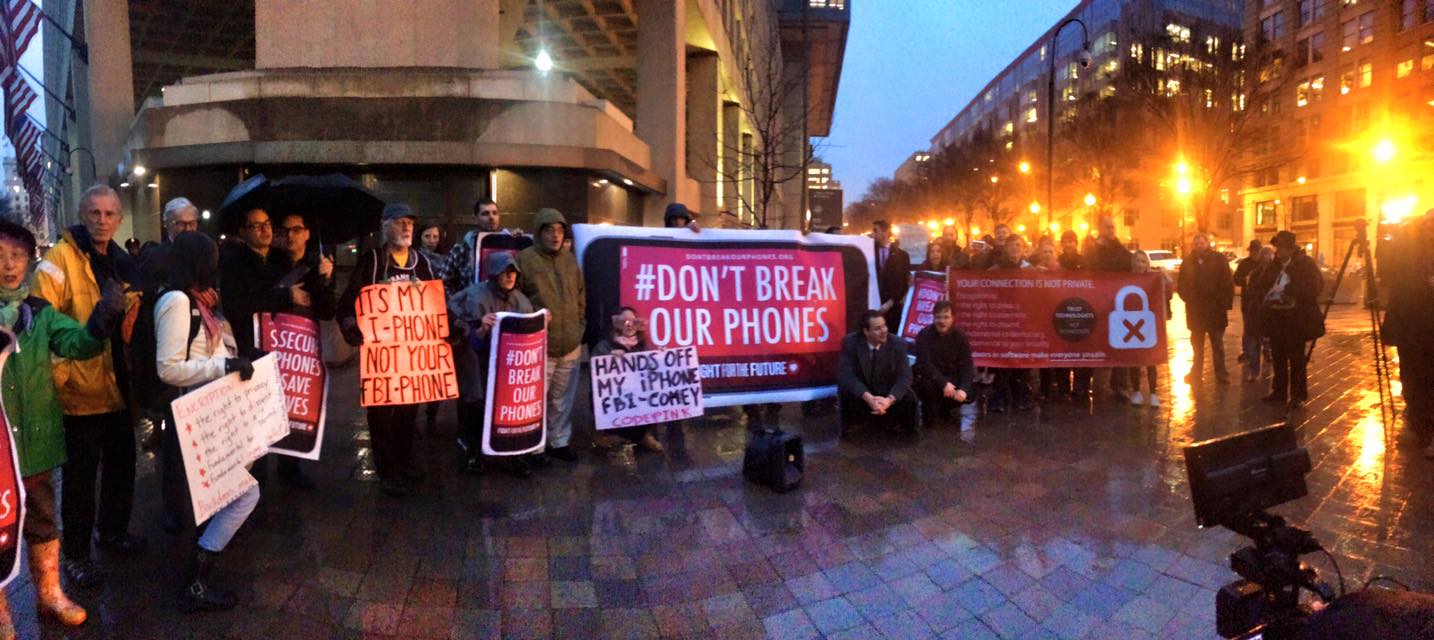 NEWS
NEWS
 NEWS
NEWS
 NEWS
NEWS
Apple has been let off the hook in the contentious iPhone unlocking case after the Department of Justice (DoJ) announced Monday that it was dropping the case.
In a notice of withdrawal, the DoJ explained that they had found a way to access the iPhone used by San Bernadino shooter Syed Rizwan Farook, saying specifically that “the government has now successfully accessed the data stored on Farook’s iPhone and therefore no longer requires assistance from Apple.”
The withdrawal follows a suspension of the case March 21 when the DoJ said that “an outside party [has] demonstrated to the FBI a possible method” for unlocking the iPhone, although at that time they noted that “testing is required to determine whether it is a viable method that will not compromise data on the iPhone.”
It was not clear from court records exactly how the Federal Bureau of Investigation (FBI) gained access to the phone or whether the method could be used on other iPhones, however the DoJ did add that it, and the FBI “are committed to helping our state and local partners gain lawful access to evidence on mobile devices, and we intend to continue assisting them in appropriate cases.”
In response to the withdraw, Apple said in a statement that it remains committed to improving the security of its products while also helping law enforcement agencies when it can but again repeated that it was seriously unimpressed in this case.
“From the beginning, we objected to the FBI’s demand that Apple build a backdoor into the iPhone because we believed it was wrong and would set a dangerous precedent,” Apple said. “As a result of the government’s dismissal, neither of these occurred. This case should never have been brought.”
The case itself brought about an unprecedented protest movement led by cyber activist group Fight for the Future that saw thousands attend rallies nationwide outside of Apple stores demanding that the Government stop its attempts to secure a permanent backdoor into Apple iPhones.
“The FBI’s credibility just hit a new low,” Fights for the Future Campaign Director Evan Greer said in a statement sent to SiliconANGLE. “They repeatedly lied to the court and the public in pursuit of a dangerous precedent that would have made all of us less safe. Fortunately, Internet users mobilized quickly and powerfully to educate the public about the dangers of backdoors, and together we forced the government to back down.”
While Apple now has a timeout the encryption wars none the less continue to rage, with the DoJ still seemingly pursuing its case against WhatsApp to obtain a backdoor to the messaging app as well.
Support our mission to keep content open and free by engaging with theCUBE community. Join theCUBE’s Alumni Trust Network, where technology leaders connect, share intelligence and create opportunities.
Founded by tech visionaries John Furrier and Dave Vellante, SiliconANGLE Media has built a dynamic ecosystem of industry-leading digital media brands that reach 15+ million elite tech professionals. Our new proprietary theCUBE AI Video Cloud is breaking ground in audience interaction, leveraging theCUBEai.com neural network to help technology companies make data-driven decisions and stay at the forefront of industry conversations.